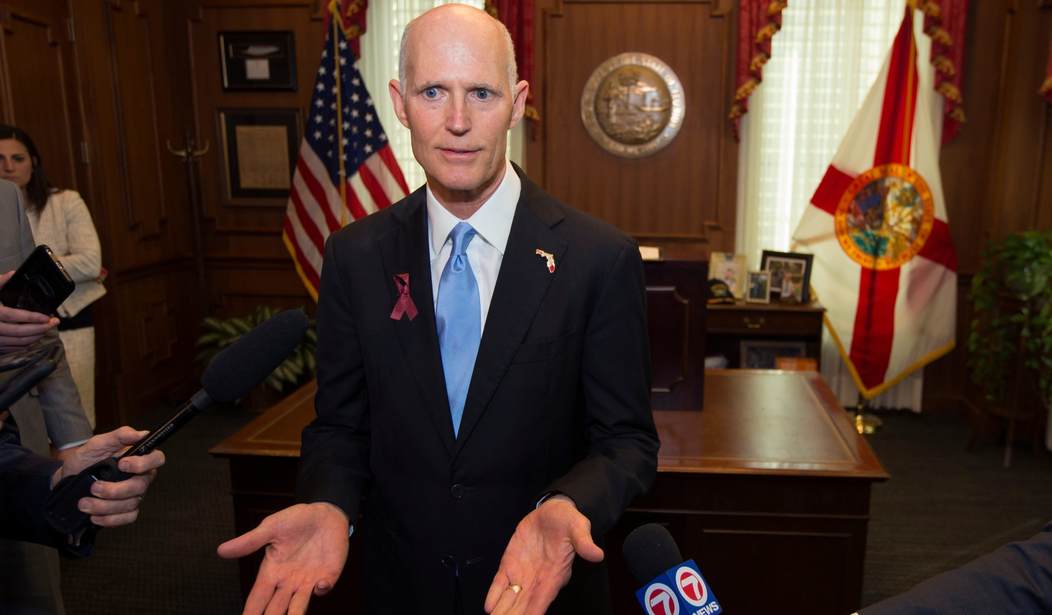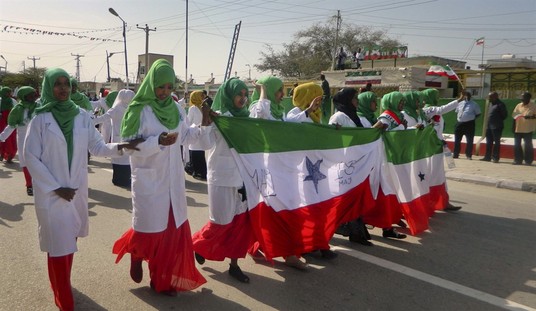The politics of Florida’s debate over whether ex-felons should be allowed to vote without making a special appeal to the governor’s office is simple: Democrats love the idea. Republicans hate it. Voters will decide in November.
Florida, Iowa and Kentucky are the only states that don’t allow ex-felons to vote after they have served their sentences, including probation and parole. The Brennan Center for Justice said that the Sunshine State’s law prevents more than 1 million people from voting.
Two sociology professors said if those Floridians, along with “disenfranchised” ex-cons in other states had been allowed to vote, the biographies of Richard Nixon and Al Gore would be radically different in the nation’s history books.
State Attorney General Pam Bondi and Gov. Rick Scott, two term-limited Republicans, have blocked a federal lawsuit that would force Florida to change the way it restores voting rights to people who get out of prison after doing time for a felony conviction.
Florida requires ex-felons to wait as long as seven years before they can apply to have voting rights restored. Even after an application is filed, it can take years more before a decision is made by the governor.
According to the Florida Commission on Offender Review, more than 10,000 of those applications were waiting for a decision in April.
Thanks to an appeal filed by Bondi, the 11th U.S. Circuit Court of Appeals blocked a federal judge’s order last month that would have required an immediate change in Florida’s voting rights application system.
Republican primary candidates for attorney general — Frank White and former Judge Ashley Moody — may not agree on much. But both told the Orlando Sentinel that, if elected, they would continue working against any attempt to change the way ex-felons are allowed to register to vote.
“The Fourteenth Amendment gives the governor broad discretion to grant and deny clemency,” White said.
Moody said a lawsuit filed by the Fair Elections Legal Network against Florida’s system for restoring an ex-felon’s right to vote was “another example of activists inappropriately attempting to use our judicial system to overturn decisions by our elected officials.”
The third GOP primary candidate for Florida attorney general, Jay Fant, did not respond to a request for comment.
Democratic primary AG candidates — state Rep. Sean Shaw and attorney Ryan Torrens — told the Sentinel they support granting of immediate voting rights to ex-felons.
“I believe that our citizens who have paid their debt to society should be able to participate in our democracy again by exercising the right to vote,” Torrens said.
Not only does Shaw consider Florida’s fight to block an order to reform the voter restoration process a waste of time and money, he believes Bondi and Scott are only defending a discriminatory system.
“Our society is one that believes in second chances, and a single mistake should not define an individual for the rest of their life,” Shaw said in a statement from his campaign.
“The remedy is in the hands of the people,” Howard Simon of the ACLU of Florida told the Tampa Bay Times.
He was referring to a proposal supported by the American Civil Liberties Union: Amendment 4. Floridians for Fair Democracy collected enough signatures to put the proposed constitutional amendment on the November ballot that would automatically restore voting rights to former felons.
Once their prison time — and parole or probation — is finished, they would again be citizens who are allowed to vote, if 60 percent of voters approved the amendment. The only exceptions would be made for convicted murderers or sex offenders.
A North Star Opinion Research/EMC Research survey showed bipartisan support for Amendment 4, enough to clear the 60 percent threshold needed for approval.
The survey showed 88 percent of Florida’s Democrats backed the ballot proposal, while 78 percent of independent voters and 61 percent of Republicans supported Amendment 4, also known as the Voting Restoration Amendment.
The poll showed overall 74 percent of Florida voters planned to cast a ballot in favor of the amendment in November.
The Brennan Center for Justice said if Amendment 4 is approved in November 1.5 million ex-felons would be able to register to vote in Florida.
Republican AG candidates White and Moody both said they opposed the amendment proposal, while Democrats Shaw and Torrens support the ballot issue.
“Democrats clearly support the issue because they believe they will benefit, and Republicans tend to oppose it because they believe they will be hurt,” said Darryl Paulson, emeritus professor of government at the University of South Florida-St. Petersburg.
But Paulson said only a third of former felons would register to vote and only a fifth of them would ever cast a ballot.
Still, sociology associate professors Christopher Uggen, from the University of Minnesota, and Jeff Manza from Northwestern University published a study that showed if felons had been voting in Florida, along with other states that have similar laws, the outcomes of seven post-1978 Senate races would have changed.
“Because of the geographic concentration of disenfranchised felons and ex-felons in urban areas, it is likely that such impact is even more pronounced in local or district-level elections, such as House, state legislative, and mayoral races,” Uggen and Manza concluded.
Uggen and Manza also said Richard Nixon would have won the popular vote in 1960 if “disenfranchised” ex-felons had been allowed into voting booths and Al Gore would have probably been elected president in 2000.
“We can only speculate about how many would have voted, and who they would have voted for,” Marc Mauer, executive director of the Sentencing Project, told the New York Times. “But clearly it may have decided the outcome of that (2000) presidential election.”









Join the conversation as a VIP Member